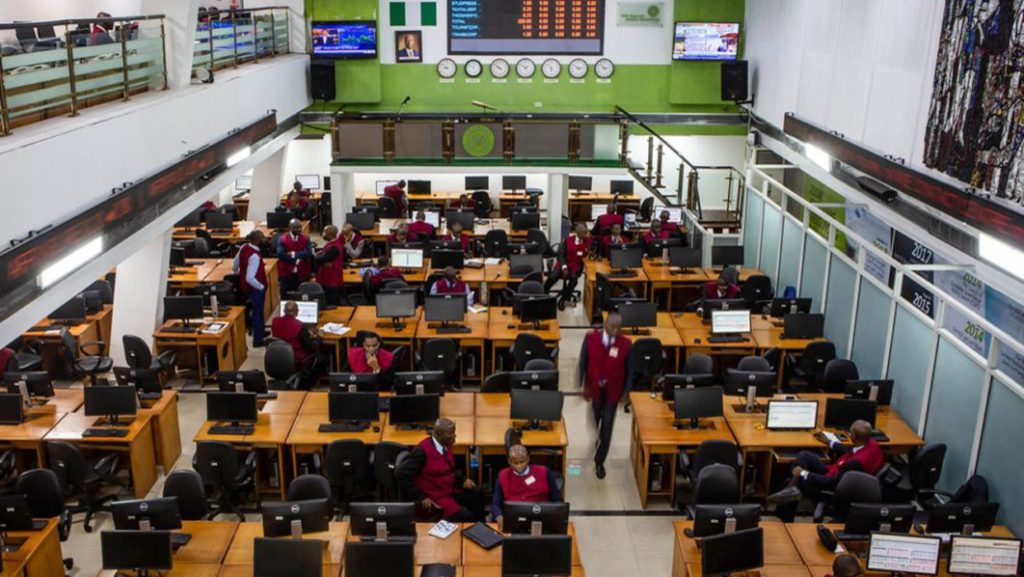The Nigerian stock market witnessed a significant downturn in the past week, characterized by a loss of N539 billion. The All-Share Index fell by 0.95 percent, culminating in a closing figure of 97,520.54, while the market capitalisation stood at N56.039 trillion. Trading activity was limited to four days due to a public holiday declared by the Federal Government on Tuesday, October 1, in honor of Independence Day. This shortened week showcased a marked decrease in investor engagement compared to the previous one, as the turnover declined to 2.87 billion shares worth N132.81 billion, down from 3.318 billion shares valued at N45.911 billion across 49,243 deals in the preceding week.
In terms of market performance, the consumer goods sector emerged as the most active, handling 1.341 billion shares valued at N106.1 billion in 4,652 transactions. This impressive activity accounted for 46.68 percent of the total equity turnover volume and an overwhelming 79.89 percent of the total value. Following closely was the financial services sector, which traded 926.615 million shares worth N14.924 billion across 19,174 deals. The oil and gas sector also contributed significantly, with 244.638 million shares transacted for a value of N7.22 billion across 4,221 deals, illustrating a relatively stable interest in these industries amid the broader market decline.
Among the key players, Guinness Nigeria, United Bank for Africa, and Japaul Gold & Ventures led the market significantly, with their combined transactions accounting for 1.708 billion shares valued at N110.77 billion. This figure represented 59.47 percent of the total equity turnover volume and an impressive 83.40 percent of the total value during the week. Conversely, the trading atmosphere was tempered by the performance of 45 equities, which saw gains while 33 shares experienced declines. Notably, 73 equities remained unchanged in their valuations, indicating a landscape where investors were increasingly cautious amidst the broader economic pressures.
Focusing on the equities that recorded the steepest declines, MCNICHOLS Plc was notably impacted, with its share price plummeting by 15.63 percent to N1.35. Fidelity Bank Plc also faced notable losses, shedding 13.33 percent and closing at N13.00. Similarly, Dangote Sugar Refinery observed a decline of 12.20 percent, bringing its shares down to N30.60. These changes in pricing may reflect the underlying economic pressures that many companies face as they navigate challenging market conditions, contributing further to a cautious sentiment among investors.
In addition to the trading fluctuations, significant business moves within the sector highlighted the economic pressures exerted on the equities market, specifically within the Consumer Goods segment. PZ Cussons announced its plans to repurchase shares, a strategic move that could potentially lead to its removal from the market. Flour Mills of Nigeria similarly declared intentions to delist from the local exchange upon the completion of its share buyback program. These actions underscore the ongoing challenges faced by these companies in maintaining market presence and investor confidence amid shifting economic landscapes.
Overall, the recent week in the Nigerian stock market showcased a complex interplay of reduced trading volumes, sector-specific pressures, and pivotal corporate actions. While certain sectors, particularly consumer goods, maintained high activity levels, significant declines in share prices and broad market capitalisation losses paint a picture of uncertainty. Investors are compelled to navigate this challenging environment with careful consideration of individual stock performances and strategic moves by corporations to adapt to shifting market dynamics.


